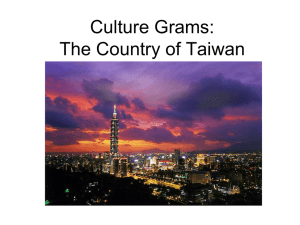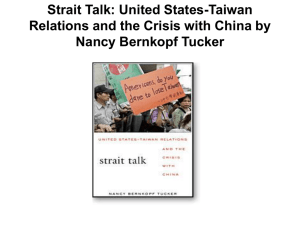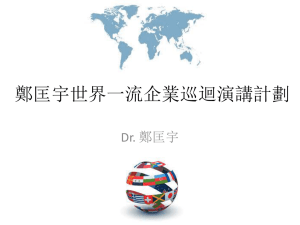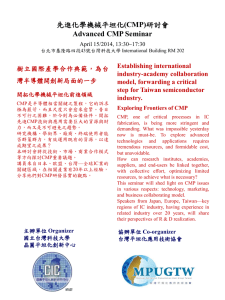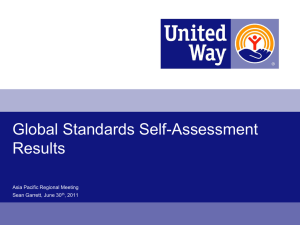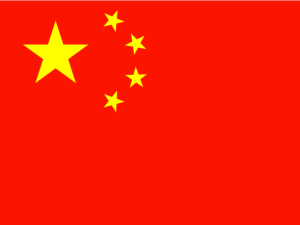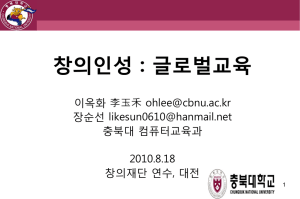Taiwan`s Foreign Aid Policy in Transition Teh
advertisement
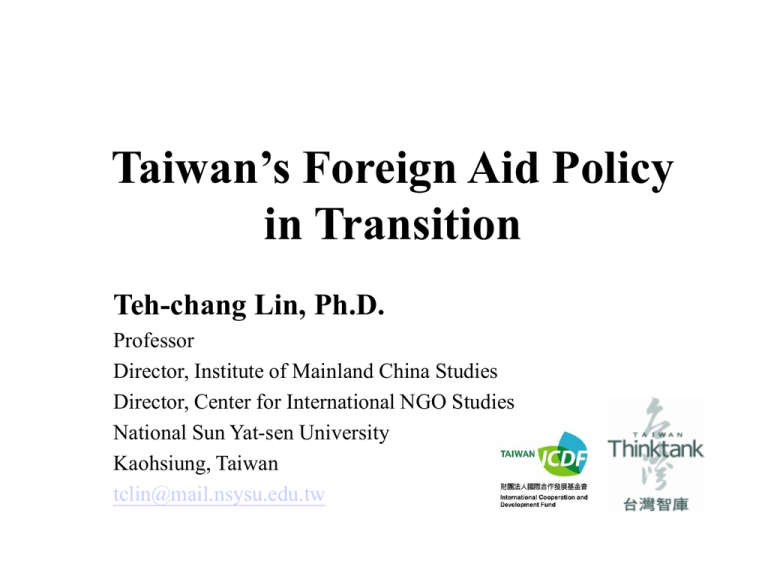
Taiwan’s Foreign Aid Policy in Transition Teh-chang Lin, Ph.D. Professor Director, Institute of Mainland China Studies Director, Center for International NGO Studies National Sun Yat-sen University Kaohsiung, Taiwan tclin@mail.nsysu.edu.tw • Two features of Taiwan. 1. Taiwan has grown strong through successful economic development, in terms of its foreign reserve, foreign investment, foreign trade and gross national product. 2. Taiwan has been diplomatically isolated in the international arena ever since 1971, when it lost its seat to Beijing in the United Nations. • Until June 2006 only twenty-five countries recognized Taiwan diplomatically. • Taipei launched a policy of pragmatic diplomacy in the end of the 1980s, employing its economic strength to foster its interaction with friendly countries and enlarge its web of connections with international community. • One important instrument that has been frequently utilized by Taiwan to pursue its foreign policy goals is bilaterally official development assistance (ODA). • The transformation of traditional bilateral ODA 1. UN Development Program 2. The Millennium Development Goals—(a) to tackle with the issues of poverty, health and education in the developing countries; (b) to call on the collaboration among international organizations, regional organizations, national governments, local governments, non-governmental organizations and communities • The issue of human development has gradually received more attention by the donors and the recipient governments since the 1990s. • The emergence of non-state actors inevitably singles out the priority of the poverty reduction and human development. • The nature of foreign aid has been gradually modified from a state-center to a society-center perspective. • A state-center aspect underlines the features of ODA which mainly relies on governmental transaction, with political motivation, between the donor and the recipient countries. • The society-center approach highlights the core value of human development and cooperation, which illustrates the importance of poverty eradication, human rights, health, sanitation, technical support, education, environmental protection and women rights for those people who living in a poor condition in developing countries. • Taiwan’s foreign aid has entered into its transitional stage. • The sophisticated concept of international development and cooperation implies that the central government is no longer able to monopolize its foreign aid program, in terms of aid design and implementation. • The complexity of the issue of development has also transformed the traditional aid program into a more diversified and specialized one. • The non-governmental organizations, with its adeptness at grass-root and with the formation of international advocacy networks, have greatly enhanced their importance in undertaking international relief and development projects toward the recipient societies. • The mixture of state-centered and society centered approaches can be discerned by the newly concept of “people’s diplomacy”. The concept has been frequently emphasized by Taiwan’s government, with its intention to supplementary the ineffectiveness of so-called “track-one diplomacy”. • Taiwan’s NGOs have gradually been encouraged to move a further step to the international community, either by their own projects or by the projects assigned or sponsored by the government. • The organizational nature of the NGOs always tends to work independently, either domestically or internationally. This further hampers Taipei’s effort in encouraging NGOs collectively to facilitate their international activities. • Taiwan’s attempt to increase its effectiveness of “people’s diplomacy” would be constrained, due to limited resources and less information-sharing among NGOs. • How to coordinate or integrate these NGOs into a coalition for both diplomatic and humanitarian purposes becomes a crucial task for government. • Most NGOs in Taiwan argue that their international activities must exclude any political motivation. • The government does expect that its performance of relief and international development can make an additional value for country’s foreign policy. • The studies on Taiwan’s bid for the United Nations and the World Health Organization not only underscore the aforementioned contradicted trend, but also highlight the dilemma currently encountered by Taiwan’s NGOs. • By mixing NGO functions with track-one diplomacy, Taiwan has placed itself in an even awkward position given the current international situation. • If Taiwan uses NGOs as a tool for pursuing instant diplomatic goals, it will obviously have misused the unique qualities of these social groups. • Faced by Taiwan’s unique international situation, Taiwan’s NGOs have played their crucial roles since the 1990s when Taipei endeavors to make a feedback to international community, to expand Taiwan’s foreign relations and to complementary the inadequateness of official foreign policy. • Taiwan’s NGOs may need to enhance their cooperation or partnership with foreign NGOs, expecting to expand their sphere into some more Third World countries. • Due to political animosity and diplomatic competition across the Taiwan Strait, Taiwan has still needed to heavily rely on the ODA to pursue its diplomatic goals in the years to come.
